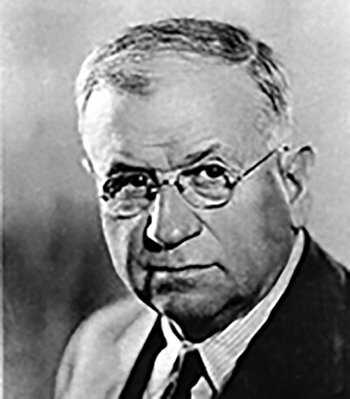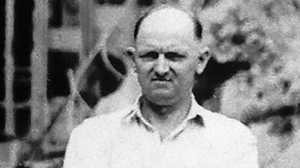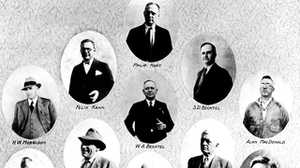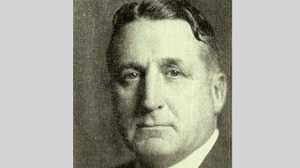Harold Ickes

When Frankln Roosevelt appointed Harold Ickes to replace Ray Wilbur as Secretary of the Interior in 1933, the men of Six Companies, men who were used to the rough and tumble world of heavy construction, became nervous. Wilbur had proven himself a valuable political ally to Six Companies. Ickes was an unknown Easterner, with a reputation for reform.
On May 8, 1933, Ickes indicated that he would be taking a personal interest in the goings-on at Black Canyon when he decided the dam should no longer bear the name of former President Hoover. “The name Boulder Dam is a fine, rugged, and individual name. The men who pioneered this project knew it by this name.” Ickes contended that the legislation that led to the creation of the project had been passed during the Coolidge administration, and that Ray Wilbur had acted inappropriately in naming the dam after his boss, Herbert Hoover.
A self-described “old curmudgeon,” Harold Ickes next turned his sights on Six Companies’ management practices at the dam. Ickes condemned the Six Companies’ practice of paying dam workers in scrip, instead of cash. Ickes instructed W.A. Bechtel, a major player in the Six Companies firm, to cease the payment of scrip and to redeem all outstanding scrip in cash. Six Companies and Ickes also clashed over the issue of minority hiring on the dam project. When Ickes took office there were only 24 African Americans in a work force of four thousand men. Boulder City, the government-built city that was home to the project’s workers, housed no African Americans.
Ickes was frustrated that due to the wording of the government’s contract with Six Companies, he had no power to influence hiring practices. He could, however, dictate that at least some African Americans be allowed to live in Boulder City. This token gesture was seen as a reprimand to the men of Six Companies, though it did little to improve the lot of African Americans working on the Boulder Dam project.







